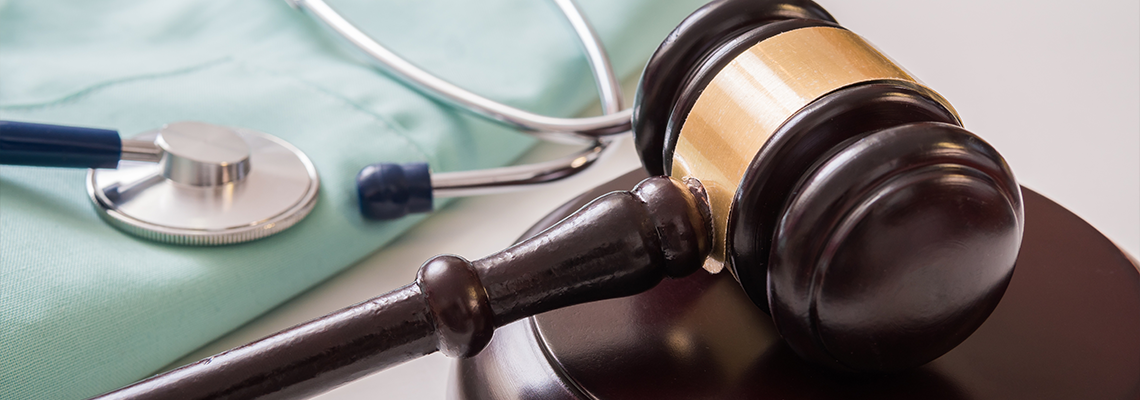One of the most common reasons for medical treatment delays is a process called prior authorization. In workers’ compensation cases, this approval process can influence everything from your first physical therapy session to long-term surgery plans.

Essential Steps to Prepare for a Catastrophic Injury Lawsuit
Catastrophic injuries are life-altering events that result in long-term or permanent disabilities, requiring significant medical care, rehabilitation, and ongoing support. These types of injuries can include traumatic brain injuries, spinal cord damage, severe burns, or loss of limbs, among others. They often come with overwhelming physical, emotional, and financial burdens for both the victim and their family.
When a catastrophic injury occurs due to the negligence or misconduct of another party, filing a personal injury lawsuit may be the only way to seek compensation for medical expenses, lost wages, pain and suffering, and other damages. However, preparing for a catastrophic injury lawsuit can be a confusing process that requires attention to detail, legal guidance, and a comprehensive understanding of the steps involved.
Thankfully, Forbes Law Firm helps residents of Poquoson County, York County, Williamsburg, Hampton, Hampton Roads, and Newport News, Virginia. Let’s take a look at a few essential steps you can take to prepare for a catastrophic injury lawsuit so you can protect your legal rights and maximize the chances of receiving fair compensation.
Document the Incident and Your Injuries
In the aftermath of a catastrophic injury, documenting the incident and your injuries is a key step. If possible, gather as much information as you can about the circumstances that led to your injury. This includes:
Photos and Videos: Capture images of the scene, your injuries, and any other relevant details. This visual evidence can be invaluable in proving negligence.
Witness Information: If there were witnesses to the event, get their contact details and ask for their accounts of what happened.
Police Reports: If law enforcement was involved, request a copy of the police report. This official document can help establish liability.
Incident Reports: If your injury occurred in a public or workplace setting, file an official incident report and keep a copy for your records.
In addition to documenting the incident, keep a detailed record of your injuries and how they affect your daily life. This can include a journal noting your pain levels, the impact on your ability to work, and the emotional toll the injury has taken.
Consult an Experienced Catastrophic Injury Attorney
Filing a catastrophic personal injury lawsuit without professional legal guidance is extremely risky. The details of Virginia’s personal injury laws, coupled with the high stakes involved in these cases, make it essential to work with an experienced catastrophic injury attorney. The right attorney can:
Evaluate the Strength of Your Case: A seasoned attorney will review your medical records, evidence, and the circumstances of the incident to determine whether you have a strong case.
Gather Evidence: An attorney will conduct an in-depth investigation to gather additional evidence, such as security footage, testimonies, and accident reconstruction reports.
Negotiate With Insurance Companies: Insurance companies often try to minimize payouts in catastrophic injury cases. Your attorney may handle communication with insurers.
Choose an attorney with a proven track record in catastrophic injury cases, particularly in Virginia, who's familiar with state laws and court procedures.
Understand the Statute of Limitations
According to the Code of Virginia from the Legislative Information System, a personal injury lawsuit must be filed within two years from the date of the injury. This is known as the statute of limitations. Failing to file within this window can result in your case being dismissed, meaning you would lose your right to seek compensation.
While two years may seem like plenty of time, building a strong case can take months or even longer, particularly in catastrophic injury cases. The sooner you initiate the process, the better. Your attorney will be instrumental in keeping track of all deadlines so your personal injury lawsuit is filed on time.
Determine the Liable Parties
One of the most important aspects of a catastrophic injury lawsuit is identifying the liable party or parties. Depending on the circumstances, there may be multiple parties responsible for your injuries, including:
Individuals: If the injury was caused by another person’s negligence, such as in a car accident or an assault, that individual may be held liable.
Employers: In workplace injury cases, the employer may be held responsible, particularly if they failed to provide a safe working environment or adequate training.
Product Manufacturers: If your injury was the result of a defective product, the manufacturer, distributor, or retailer may be liable under product liability laws.
Property Owners: In premises liability cases, such as slip-and-fall accidents, the property owner may be held accountable if their negligence led to unsafe conditions.
Calculate Damages
Catastrophic injuries often lead to significant financial losses, so it's essential to accurately calculate the damages you’re seeking in your personal injury lawsuit. Damages typically fall into two categories:
Economic Damages: These are quantifiable losses that include medical expenses, lost wages, loss of earning capacity, and costs of future medical care. Given the long-term nature of catastrophic injuries, calculating economic damages often requires input from medical and financial professionals.
Non-Economic Damages: These cover more subjective losses, such as pain and suffering, emotional distress, and loss of enjoyment of life. Non-economic damages can be substantial in catastrophic injury cases, as the impact on the victim's quality of life is often severe and permanent.
In Virginia, there are caps on some types of damages, particularly in medical malpractice cases. Your attorney will help you pursue the maximum compensation allowed by law.
Work with Medical Professionals
Professional testimony is often crucial in catastrophic injury cases. Medical professionals can provide a detailed analysis of your injuries, explain the long-term impacts on your health and well-being, and support your claim for damages. These professionals can:
Provide a Prognosis: Medical professionals can describe the likely course of your recovery and whether you’ll require lifelong care.
Quantify Future Medical Costs: Professionals can project the costs of ongoing treatment, rehabilitation, and adaptive equipment, all of which are critical in calculating damages.
Testify on Your Behalf: During the trial, medical professionals can testify to the severity of your injuries and the extent of your suffering.
Working with the right medical professionals can strengthen your case by offering credible, objective insight into your condition.
Prepare for Settlement Negotiations
The majority of personal injury lawsuits are settled out of court, meaning that both parties agree on a compensation amount without going to trial. In a catastrophic injury case, settlement negotiations can be challenging, as the financial stakes are high.
Your attorney may handle these negotiations, using the evidence and testimony to advocate for a fair settlement. However, it’s important to remain realistic during this process. While a settlement can provide quicker compensation than going to trial, it may not always be as high as the amount awarded in a courtroom. Before accepting any settlement offer, discuss the pros and cons with your attorney so it aligns with your long-term needs.
Get Ready for Trial
If a settlement can’t be reached, your case may proceed to trial. Preparing for a trial is a lengthy process that involves:
Depositions: Both you and the defendant will likely be required to give depositions, or sworn testimony, prior to the trial. This is an opportunity for each side to gather information and build their case.
Discovery: The discovery process involves the exchange of evidence between both parties, including documents, witness statements, and reports.
Court Appearances: You’ll need to attend various pre-trial hearings, where procedural matters are addressed. Your attorney will represent you during these appearances and keep you informed of any developments.
Jury Selection: In some cases, your attorney may be involved in choosing the jury that will hear your case. This process is critical to a fair trial.
A trial can be an emotional and stressful experience, but your attorney will guide you through every step so you’re well-prepared.
Focus on Recovery
Throughout the lawsuit process, it’s important to prioritize your recovery. Dealing with the legal aspects of a catastrophic injury can be overwhelming, but remember that your physical and emotional health comes first. Lean on your support network, including family, friends, and healthcare providers, to help you cope with the challenges you’re facing. Your attorney will handle the legal work so you can focus on your rehabilitation and adjust to any changes in your daily life brought about by the injury.
Contact Us Today
Preparing for a catastrophic personal injury lawsuit is a multifaceted process that requires careful planning, experienced legal guidance, and a comprehensive understanding of the steps involved. Although the process can be emotionally draining, working with a skilled attorney at Forbes Law Firm will help you through the legal system more effectively. Give us a call today to get started with a free consultation.
RECENT POSTS
Traversing the aftermath of a car accident in Virginia can be a disheartening experience, particularly when it involves injuries and the prospect of a settlement. Deciding when to accept a settlement for auto injuries is a critical decision that requires careful consideration of legal, financial, medical, and personal factors.




